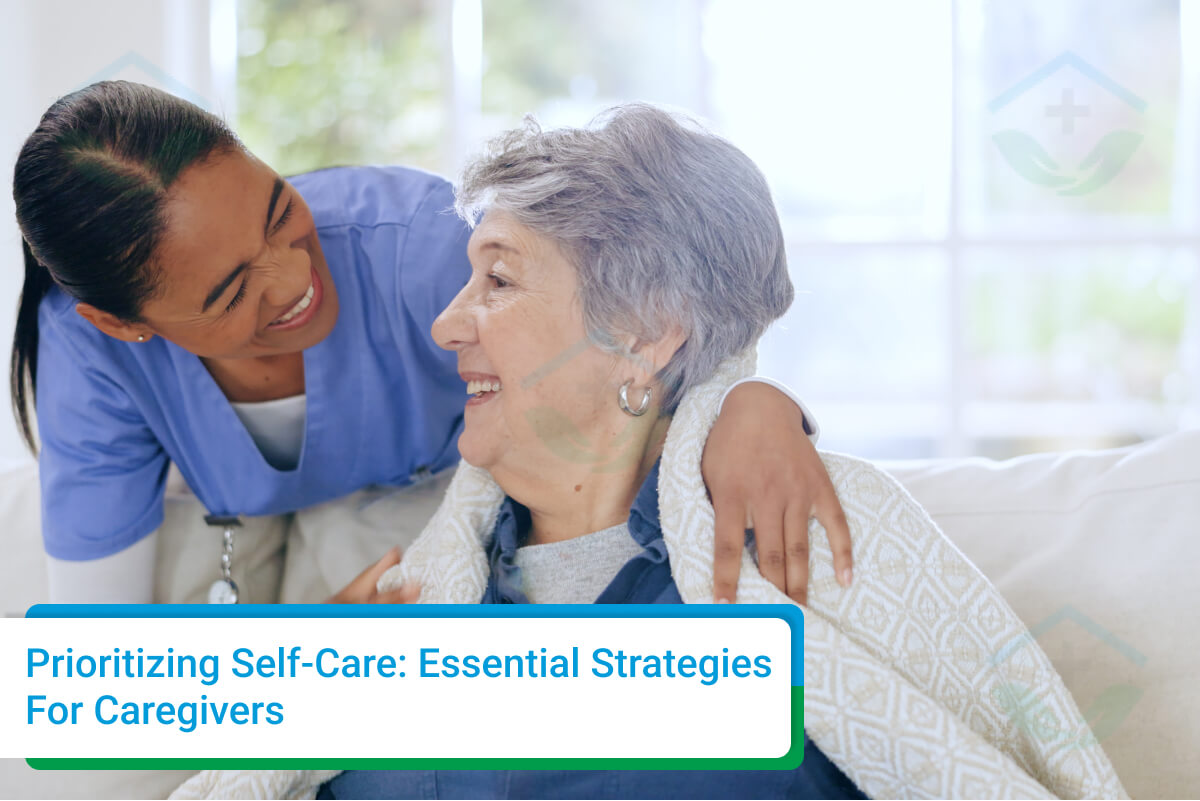In the realm of caregiving, the focus is often directed towards the well-being of those being cared for, inadvertently placing the needs of caregivers on the back burner. However, the importance of self-care for caregivers cannot be overstated. It is the foundation upon which effective, compassionate, and sustainable caregiving rests. This blog explores why self-care is crucial for caregivers and offers practical strategies to integrate it into their daily routines.
Understanding the Need for Self-Care
Caregiving, by its very nature, is a role marked by emotional and physical demands. Whether it’s caring for an aging parent, a spouse with a chronic condition, or a child with disabilities, the responsibilities can be overwhelming. The constant focus on another’s needs can lead to a neglect of one’s own health and well-being, resulting in caregiver burnout—a state of physical, emotional, and mental exhaustion.
Recognizing the signs of burnout is the first step towards addressing it. Symptoms may include feelings of depression, irritability, fatigue, and disconnection, along with physical manifestations such as sleep disturbances and changes in appetite. Addressing these symptoms through self-care is not a luxury but a necessity.
Self-Care Strategies for Caregivers
Set Boundaries: Learn to say no to tasks that are beyond your capacity. Setting clear boundaries helps manage your time and energy effectively.
Seek Support: Engage in support groups either online or in your community. Sharing experiences and advice with those in similar situations can provide comfort and practical solutions to common challenges.
Take Time for Yourself: Allocate specific times for activities you enjoy, whether it’s reading, walking, meditating, or pursuing a hobby. These moments can provide a necessary respite from caregiving duties.
Stay Connected: Maintain relationships with friends and family. Social interaction is crucial for mental health, offering an avenue for relaxation and emotional support.
Practice Mindfulness: Techniques such as meditation, deep breathing, and yoga can reduce stress and enhance emotional equilibrium.
Prioritize Physical Health: Regular exercise, a balanced diet, and adequate sleep are pillars of physical and mental health. They improve energy levels, mood, and overall resilience.
Educate Yourself: Understanding the nature of the care recipient’s condition can reduce uncertainties and equip you with effective coping strategies.
Delegate Responsibilities: Don’t hesitate to ask for help from family members, friends, or professional services. Delegating tasks can lighten your workload and provide time for self-care.
Professional Help: If feelings of burnout, depression, or anxiety become overwhelming, seeking professional help from a therapist or counselor is crucial.
The Ripple Effect of Self-Care
Practicing self-care has a ripple effect that benefits both the caregiver and the care recipient. A caregiver who feels physically and emotionally replenished is more present, patient, and empathetic, leading to higher-quality care. Furthermore, by modeling self-care, caregivers can encourage their loved ones to also engage in healthy practices.
Conclusion
The journey of caregiving is one of profound love and commitment. However, it’s important to remember that caring for others should not come at the expense of one’s own health and well-being. By integrating self-care into daily routines, caregivers can safeguard their health, ensuring they have the strength, patience, and emotional capacity to continue their invaluable work. Remember, taking care of yourself is an integral part of taking care of others.
















